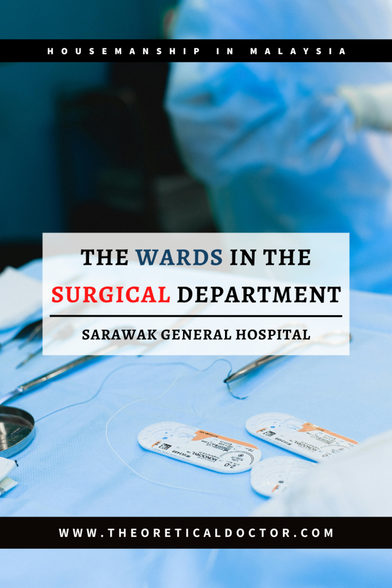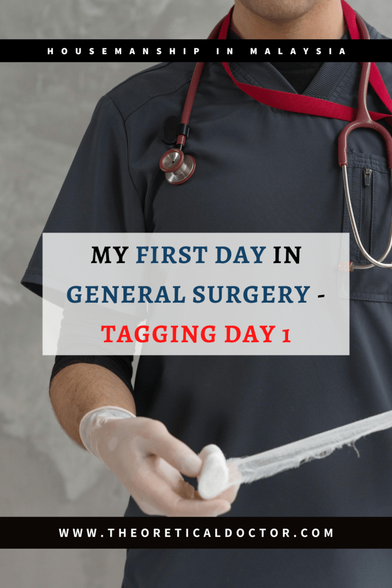Working In The Nursery Ward – Housemanship Diaries
Related Posts:
Pushing into my third month in Paediatrics Posting, I was allocated to the Nursery Ward, after successfully completing my Neonatal Resuscitation Program (NRP).
I was rather fearful and hesitant. I heard that the hours are a killer and working the night shift and being the post night is even worse. However, I was mainly worried about being a resuscitator.
Prior to joining the Nursery Ward, I have had a few experiences working in the ward itself. Not as a resuscitator but merely covering the morning rounds, going a out reviewing as well as settling the job lists.
Thankfully, I had a few experiences covering for the Nursery Ward. Thus, I was not completely blur upon entering the ward. Except this time, I had to serve the night shift as well as to resuscitate.
The Morning Shift
On paper, the morning shift is from 7am till 7pm.
However, most of us would arrive at latest at 6am. This is because the “coming mornings” were taken by the morning shift and not the night shift.
Usually the day or night before which is before the morning shift were to return home for the day, they would have to prep the “coming morning bloods”, which is a normal thing we would do in other postings. This includes preparing the forms and tubes or in this case, name stickers for the tubes and to update in the coming morning list in the house officer’s group. The list merely serves as a guide for the team for the following day to refer once they arrive to take blood. Once all the bloods from their allocated cubicles have been taken, we are expected to help the others out if there are anymore bloods to be taken followed by sending it first to the lab before joining the medical officers for morning reviews or rounds.
In the Nursery Ward, the medical officers arrive by 7am and the specialists begins their rounds around 9am. Thus, upon their arrival, they will proceed with their morning reviews first while us house officers are taking the coming morning bloods.
After we are done taking the coming morning bloods for our allocated cubicles, we will then proceed to help the others with their coming morning bloods if it is not done and send it all first prior to joining the medical officers and specialists for rounds.
After rounds, just like in other wards, it is followed by the completion of active job lists such as requesting scans, referrals or any other STAT bloods, tracing of bloods and updating as well as clerking new cases.
Usually by 12pm, we would be done and have a short break for lunch.
If it is during the weekdays, we would then proceed with afternoon reviews and wait to do rounds with the medical officers and specialists.
The rounds would end around 3pm to 4pm. Just like in the mornings, it is then followed by completion of the active job lists. However, since the rounds end late, usually things starts to slow down.
Then, we will start prepping forms on the observation chart such as the “Day of Life”, diagnosis or any planned discharges, as well as the preparation of coming morning bloods before heading home at 7pm.
This is if you are allocated purely to the Nursery Ward of course.
The Resuscitator
My favourite part of working in the Nursery Ward.
During the morning or night shift, we have an allocated resuscitator on duty. A resuscitator is “on-call” during their shift and has to accept referrals from the Labour Ward or Maternity Ward.
Upon the start of our shift, we will introduce ourselves in a designated group which consists of the House Officers from both the Paediatrics and Obstetrics & Gynaecology (O&G) teams, that we are the resuscitators on duty for that day.
On good days, the referrals are coming in, one at a time but on bad days, they would come in bulk, happening all at the same time. The thing is that you would wish that you could divide yourself.
The cases which are referred are usually meconium-stained liquor – SMSL, MMSL, TMSL, mothers going for lower segment caesarean section, vacuum-assisted delivery and mothers diagnosed with chorioamnionitis (just to name a few).
Not all referrals requires the medical officers to be on standby and supervise us. However, upon receiving the call, we are expected to first go to the mothers and clerk the mother’s condition as well as the indication of referral.
This is then proceeded by presenting the case to the medical officers if they are required to be on “stand-by” or to inform regarding the likelihood for admission upon delivery.
Prior to being a resuscitator, we are required to have completed the “Neonatal Resuscitation Program – NRP” which would then deem us competent for being a resuscitator.
Being the allocated resuscitator can be daunting at times especially if it is the very first time as the cases can sometimes be dire and the calls received are unpredictable.
However, fear not. It is extremely daunting at first but have faith and know that help is always nearby should you need it.
The Night Shift
The Night Shift in the Nursery Ward is from 7pm till 7am, on paper. The reality is that if you are working the night shift in the Nursery Ward, we usually return home around 11am – 12pm the following day.
There are only two House Officers allocated in the Nursery Ward at night. One is usually in charge of the ward in terms of carrying out the active job lists, taking time sensitive bloods, tracing bloods and clerking new cases while the other will be the main resuscitator, attending to cases, similar to the one from the morning shift.
At 7am, we will handover any pending cases from the night before and proceed to Maternity 1 and Maternity 3.
Upon arriving to Maternity 1 and Maternity 3, we will collect all the “baby books” from the babies’ cot and proceed to trace the cord TSH (cTSH), G6PD status or any pending bloods or serum bilirubin in the system.
After completion of tracing, we will proceed to start our baby check and should any baby appear clinically jaundiced, we will check their bilirubin through a TCB machine and start phototherapy or to take “Day 1 Jaundice” workup if needed.
All the babies in Maternity 1 and Maternity 3 will be checked even if they have already been done the day before.
Upon completion of our baby checks with the medical officers, we will then go about carrying out any necessary job lists such as transferring out babies from the Maternity ward to the Nursery ward, taking bloods, tracing bloods, referrals or sending the babies down to Nursery Ward for any scans.
If you are due to enter the Paediatrics Department or to work in the Nursery Ward, fear not, it can seem daunting at first but my experience working in the Nursery Ward for 4 weeks were fruitful and I enjoyed every moment of it.
Remember to always be of good support to your colleagues be it in terms of helping out with their workload or just merely being of good moral support.
Lastly, remember to enjoy the journey and every bit of the moment.
Related Posts:
YouTube | Instagram | Pinterest | Facebook | Spotify
About Me | Privacy Policy | Contact Me
#article #Articles #babies #Blog #blogging #bloggingAsADoctor #dailyprompt #dailyprompt1863 #dailyprompt1903 #dailyprompt1904 #dailyprompt1906 #dailyprompt1907 #dailyprompt1908 #dailyprompt1910 #dailyprompt1912 #dailyprompt2027 #dailyprompt2028 #dailyprompt2029 #dailyprompt2030 #dailyprompt2032 #dailyprompt2034 #dailyprompt2039 #dailyprompt2041 #dailyprompt2045 #dailyprompt2049 #dailyprompt2050 #dailyprompt2051 #dailyprompt2053 #dailyprompt2056 #dailyprompt2057 #dailyprompt2060 #doctor #labourWard #medical #Medicine #nightShift #nursery #paediatrics #pediatric #ward #work #working #write #writing






